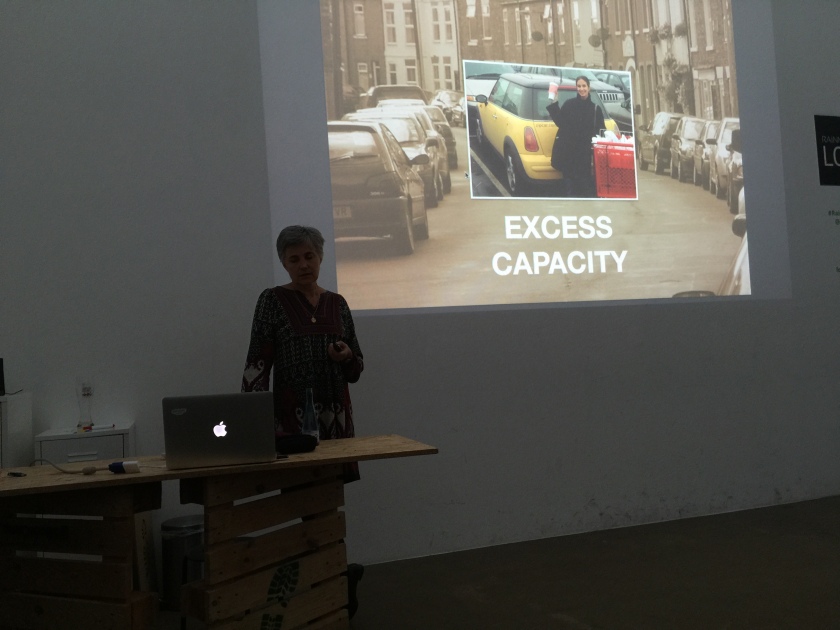What’s the economic driver behind the so called sharing economy? Robin Chase points into one direction. Thanks to technology, we can build platforms which enable us to harvest the excess capacities all around us. As a co-founder of Zipcar, the car-sharing trailblazer, she knows what she’s talking about. Owned cars are sitting around most of the time. Rentals you get for 24 hours (which, hopefully, is a bit longer than you’re actually going to drive it). A Zipcar you get by the hour. Daimler’s Cars2Go are even rented by the minute. That’s harvesting the excess capacity of a massive chunk of hardware which usually hangs around at the curb like idling teenage mall rats after school.

Her talk was partly a compressed version of her new book Peers, Inc. The gist: linear solutions for exponential problems just don’t scale. Peers, Inc. is about harnessing massive problems with scaling. How was AirBnB able to quickly offer more as much bed-inventory as the largest hotel chains? Because their technical platform leverages the power of the people to pool their excess capacity.
Of course we do know by now, that some of the drivers of the sharing economy are not that benign. Granny letting out her spare bed room once a year sounds nice. But Mr. Greedy creating new inventory by taking 3 bedrooms condos off the rental market to rent them out by the day is a rather excessive approach to excess capacity.
Harvesting excess capacity is the underlying scalable model. Mr. Greedy may be driven more by taking advantage of regulatory arbitrage. But this is a problem which fairly easily can be remedied.
The complicated part starts when sharing economy entrepreneurs understand, that one excess capacity in later stage capitalist societies is man power. Look at Über: the drivers take on the capital expense of buying the car, take on the operating expense of maintaining it, take on all the risks.
And that’s how we come back to Robin’s talk. The occasion was our biweekly Bitcoin Startups Meetup. How does this relate? Currently, most sharing economy platforms are driven by shareholder value. The Bitcoin (or crypto) model works differently. It’s a stakeholder model.
Some small steps are already happening. A couple of Denver cabbies are asking: What If Uber Were a Unionized, Worker-Owned Co-Op? Joel Dietz‘ Swarm is pushing forward in many different ways.
Crypto-based decentralized applications don’t need statements like “Don’t be evil”. Their DNA is sequenced and public from the start. This includes the potential switch of the underlying economic model, from rent-seeking shareholders to a revenue-sharing stakeholders.
Addendum: here’s some more material from a talk I gave last year on the topic: “The new decentralized sharing economy and crypto coins”